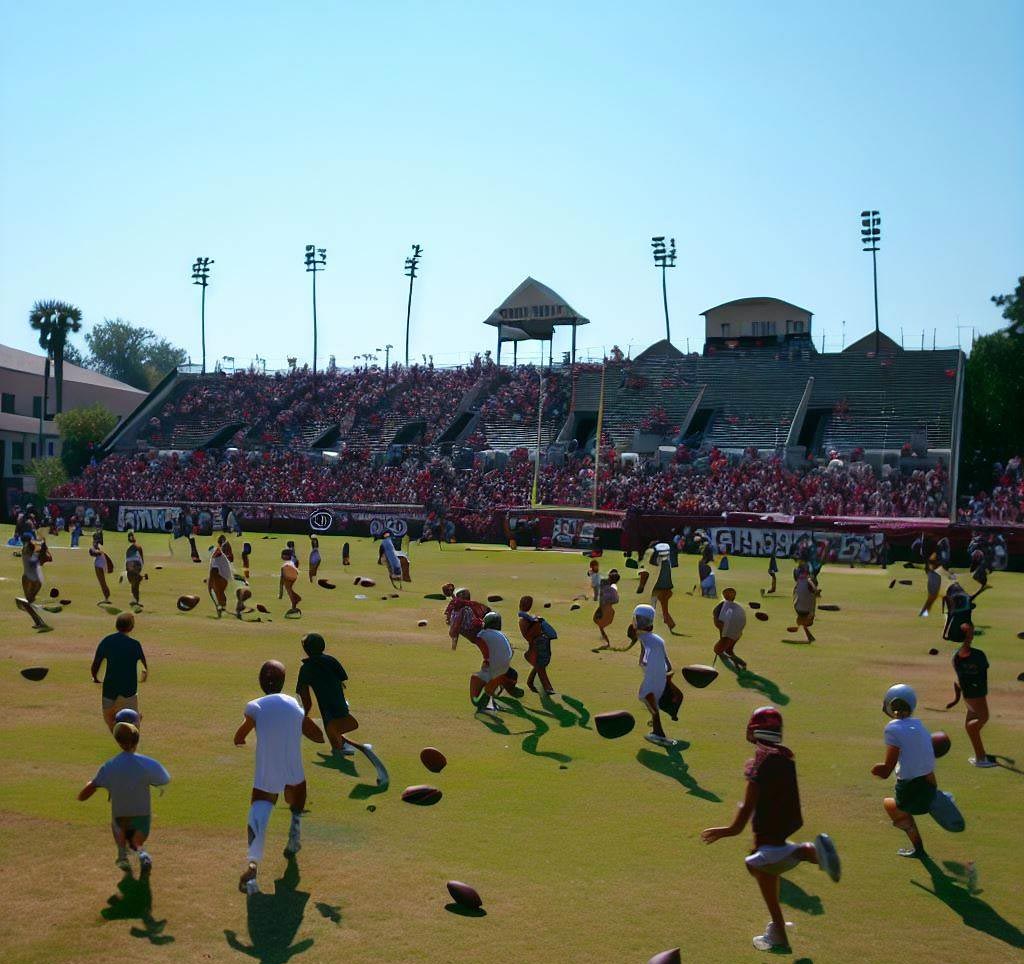
Football Culture in the American South: Traditions, Rivalries, and Community
Historical Background of Football in the American South
To appreciate the depths of "Football traditions and fan culture in the American South", one needs to revisit its rich history. Introduced in the late 19th century, football swiftly caught the region's attention and became a part of their socio-cultural fabric. Notably, Southern universities like the University of Alabama and Louisiana State University played an instrumental role in elevating the sport's status, making "Southern American football fandom and rituals" not just pastimes but ingrained traditions.
"Football is not a religion in the South, it's much more important than that," as former football coach and player Wally Butts aptly put.
Influence of College Football on the Region's Culture
Over time, college football has significantly influenced the "football culture South". Saturdays in the South are not merely days; they are experiences. College football games are community events that bring together generations of alumni, current students, and prospective students. It's a spectacle that fosters a sense of camaraderie, tradition, and identity within the community. Southern universities' sprawling campuses transform into epicenters of activity, reflecting the spirited "American South football traditions".
Traditions and Rituals Associated with Football in the American South
Exploring "Southern football fandom" requires an understanding of the deeply rooted traditions and rituals that accompany the sport. Unique chants, mascot displays, pre-game processions, tailgating, homecoming celebrations, and historic rivalries are all part of the vibrant "Southern football traditions".
The tradition of tailgating, for instance, is a quintessential element of the game day experience. It's not merely about barbecuing and drinking before a game; it's a social event where the sense of community, camaraderie, and spirited competition comes to life.
Impact of Race and Identity on Football Culture in the Region
The "football culture in the South" cannot be discussed without addressing the impact of race and identity. Historically, football in the South was marred by racial segregation. The integration of African-American players into university teams in the 1960s and 70s was a significant turning point that reshaped the cultural dynamics of the sport. It opened the doors for a more inclusive "American South football culture", albeit amidst challenges.
Southern Rivalries and Their Significance in Football
Rivalries are an integral part of the "Southern football customs", significantly amplifying the sport's thrill and appeal. These rivalries, like the "Iron Bowl" between the University of Alabama and Auburn University, or the annual showdown between the University of Georgia and Florida University, known as the "World's Largest Outdoor Cocktail Party," transcend the confines of the sport, permeating the social and cultural life of the region.
Tailgating and Game Day Experiences in the American South
The southern game day experience, from tailgating traditions to packed stadiums, reflects the enthusiasm and passion inherent in "Southern American football fandom and rituals". Tailgating is an art form in the South. It's a pre-game ritual that involves food, family, friends, and sometimes even elaborate setups with multiple television screens and extravagant food spreads.
Role of Football in Community Bonding and Pride
Football serves as a potent tool for community bonding and pride in the American South. From tiny towns to large cities, football galvanizes communities, fostering a sense of belonging and unity. Schools, colleges, and communities rally behind their teams, using football as a symbol of community strength and resilience.
Notable Football Teams and Players from the American South
The American South has given football some of its greatest teams and players. Icons like Bear Bryant, Peyton Manning, and Bo Jackson hail from this region, contributing to the "American South football traditions" and the sport's national stature. These individuals not only exemplify the high level of play but also reflect the region's enduring passion for the sport.
Evolution of Football Culture in the Region Over Time
Over the years, the "football culture South" has evolved while retaining its core essence. From the integration of players across racial lines to the influx of modern traditions, Southern football has proven its adaptability to change. Despite the evolution, the spirit of community, passion for the game, and deep-rooted traditions remain unwavering, underlining the endurance of "Southern American football fandom and rituals".
Socioeconomic Factors Influencing Football Culture in the American South
Socioeconomic factors also play a significant role in shaping "Southern football customs". For many in the region, football offers an avenue for social mobility and economic opportunities. Scholarships and the potential for a professional career drive many young athletes' dreams, making football more than just a sport but a means towards a better life.
Conclusion
In exploring "Football traditions and fan culture in the American South," we find a rich tapestry of traditions, rituals, and community bonds that extend beyond the football field. It's an intricate blend of historical, cultural, and socioeconomic factors, making it more than just a sport. The football culture in the American South is a testament to the region's identity, a unifying force that continues to inspire and engage its communities. As football continues to evolve, this culture's resilience and adaptability will undoubtedly ensure its enduring relevance in the American South.
Sports Football

